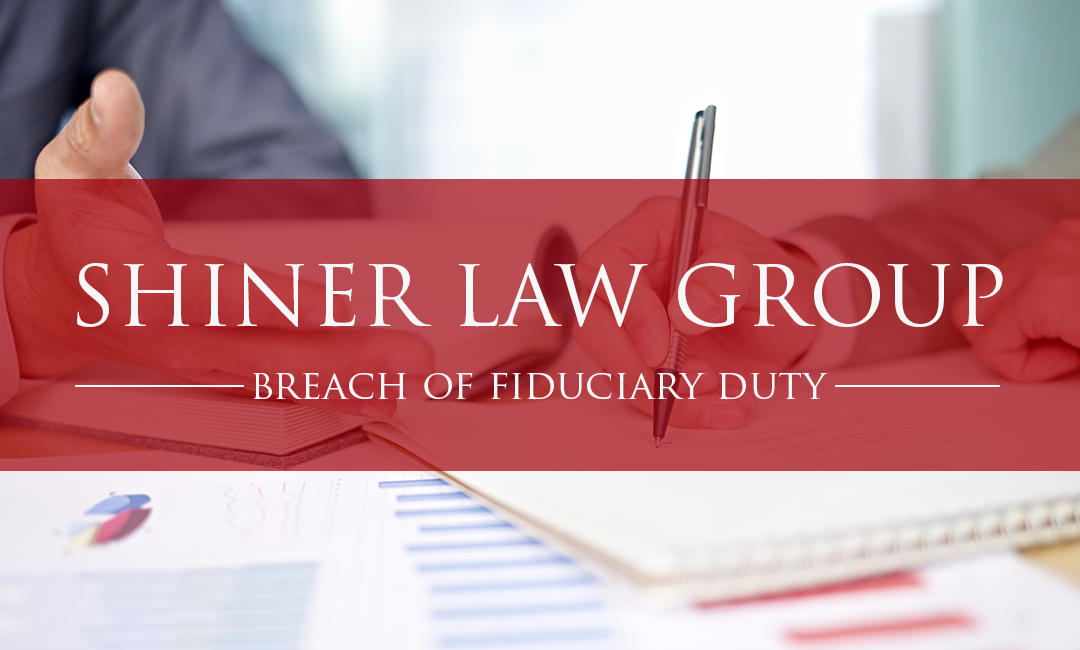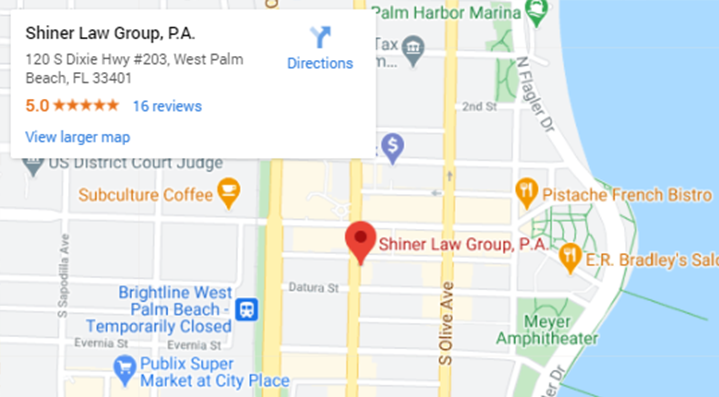Breach of Fiduciary Duty
A fiduciary duty is basically an obligation where one party acts in the best interest of the other, such as:
- The board of directors of a company has a fiduciary duty towards shareholders.
- A trustee has a fiduciary duty towards the beneficiaries of the trust.
- Doctors have a fiduciary duty towards their patients.
Although fiduciary duty may exist in different situations and contexts, it essentially refers to the fact when a special trust, reliance, and confidence is placed on the fiduciary to exercise their discretion and expertise in acting in the best interest of the other party (their client).
The fiduciary must accept that confidence and trust and knowingly exercise their expertise to act on the client’s behalf. When one party agrees to act for another party in a fiduciary relationship, the law forbids the fiduciary from acting adversely or in contrary to the interest of the client.
Simply stated, the client in a fiduciary relationship is entitled to the best efforts of the fiduciary on their behalf and therefore, the fiduciary must showcase their best skills, due diligence and care when acting on behalf of the client. Also, the fiduciary is held to a high standard of honesty and full disclosure and must not strive to gain personal benefits at the expense of the client.

What Is a Breach of Fiduciary Duty?
A breach of fiduciary duty is when a fiduciary breaks the obligation and acts in the interest of themselves instead of the best interest of their client/principal. This is when their actions conflicts with the interest of the client.
A fiduciary, under no circumstance, can use corporate assets or property for their own personal gains, overriding the interest of their client. In other words, they cannot take advantage of a corporate opportunity for their own personal pursuits. That’s just illegal and against the fiduciary duty.
There are serious legal implications for a breach of fiduciary duty. It can have significant consequences on the finances as well as the reputation of the concerned fudiciary.
An act of a breach of fiduciary duty can be anything such as:
- Actions that benefit the fiduciary solely,
- Failure to be transparent with important information,
- Not providing quality guidance and services, as expected.
Potential Consequences
Due to the fact that a fiduciary is associated with high duty of care, a breach is regarded as a serious issue and therefore, can result in litigation. Here are some of the potential consequences and charges that a fiduciary may face in case of a breach:
Compensatory Damages
If the breach of fiduciary duty reaches litigation, then the victim may receive compensatory damages. Compensatory damages can help compensate the victim for the losses that they may have incurred due to the breach of fiduciary duty.
Let’s take a look at an example to understand it better:
Suppose a company’s director makes a decision that happens to profit the director at the shareholders’ expense. The shareholders may argue about the director’s decision and go to the court to declare a breach of fiduciary duty. As such, the decision resulted in a big loss to the shareholders. If this breach is proven in the court, then by law the director will have to pay compensatory damages to the shareholders.
Punitive Damages
Sometimes, the violation of fiduciary duty can also result in punitive damages. Punitive damages are beyond compensatory damages. It basically punishes the fiduciary for violating their duty.
The goal of punitive damages is to discourage the defendant from committing the same act again in the future. Also, it sends a message to the society at large that breaching fiduciary duty will result in serious charges for the offenders. These types of damages are only awarded if the fiduciary committed fraud and malice.
Professional Consequences
Apart from punitive and compensatory damages, professionals may also experience other types of consequences that can hamper their careers. For example, a breach of fiduciary duty by a doctor could form a basis of medical malpractice lawsuit. And depending on the claims made, a breach could even get a doctor debarred. Some professionals can also end up losing their professional accreditation and license, such as accountants. The loss of their accreditation can be worse than being ordered financial damages as it can lead to their inability to stay in their profession.
How to Win a Breach of Fiduciary Duty Compliant?
When it comes to making a breach of fiduciary duty compliant, you must have a seasoned attorney by your side to fight your case and prove that the fiduciary is guilty in order to receive compensation. The plaintiff must prove that the fiduciary:
- Had duties of care like acting in their best interest, being transparent and being loyal to them,
- Failed their duty by withholding pertinent information,
- Failed their duty by abusing their position and
- That because of the wrongful actions of fiduciary, the plaintiff suffered damages.
For this, you need quality assistance of an experienced lawyer who can provide you with quality guidance and collect crucial evidence to prove a breach of fiduciary duty. And this is where we Shiner Legal Group Business & Commercial Lawyers come into the picture. We have a wealth of experience in this domain and can easily help you navigate the complexities of the legal process. Our lawyer can provide you with step-by-step assistance, helping you get the justice you deserve!









